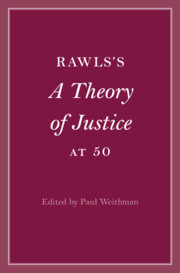Despite more than half a century of reform efforts, access to civil justice is still understood to be in a state of crisis. Part of the reason for this is because there is no consensus among the legal community on the meaning of justice in this context. This paper seeks to provide a much-needed theoretical underpinning to the access-to-civil-justice movement. It advances ‘justice as fairness,’ as articulated by the American philosopher John Rawls, in conjunction with Lesley Jacobs’ model of equal opportunities, as a suitable theory in which to frame the access-to-civil-justice movement. I explain why this framework is appropriate for pluralistic democracies like Canada and how it can be used to define measures of justice. This exercise is thus not simply a theoretical discussion, but rather is intended to be used as a practical framework to assess current and proposed policy initiatives.


